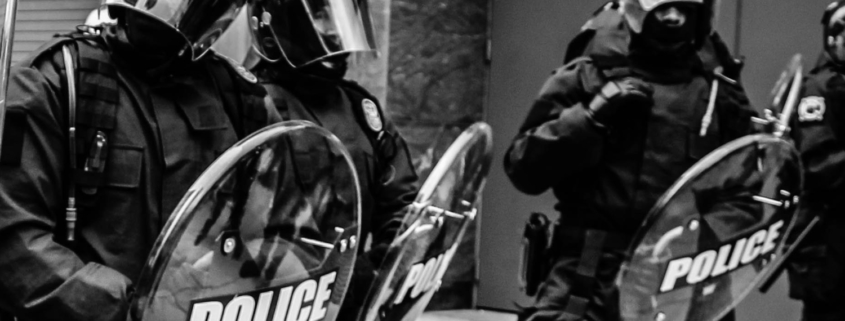Conversation Watch: Police and Community
As we mentioned in our last blog and Facebook posts, we will be posting a book list of recommended readings that show how various people are seeking and sometimes achieving common ground. One of our first recommendations was Our Towns: A 100,000 Mile Journey Into the Heart of America which focuses on how individual communities are revitalizing through working on local problems and in some respects ignoring the noise of the echo chambers.
During our recent event in Charlottesville, VA featuring Donna Brazile and Michael Steele on the Role of Government in Bridging the Racial Divide, Michael Steele made the point that government can only do so much and that community engagement must be a major part of any achievement of common ground on the racial issues that rip communities apart. Michael added a personal antidote by recounting his upbringing where the local police for example lived and patrolled their neighborhoods and consequently knew exactly who those were most likely to create problems. Donna Brazile agreed with this point and added her own personal antidote of a similar experience growing up with civil servants and first responders who worked in the areas they lived in.
An example of the type of community conversation that Steele and Brazile were referring to took place this month in South Bend, Indiana which has seen its share of incidents where civil rights violations have been alleged and both sides have agreed over the course of time that work is needed to be done between the police and the community to restore trust while mindful of safety needs of everyone involved,.
The City and constituents mostly from African American neighborhoods in South Bend have been engaging for the last couple of years on a series of meetings both big and small to try to bridge some of the gaps and at least attempt to find some common ground on how police and members of the African American community can at least come to terms with how to approach the issues. The most recent took place on May 1st that was organized and filmed by a local television station.
The central theme that emerged was that many of the issues that divided the sides stemmed from generalization rather than specifics and policies that were in place such as how a suspect is identified or detained is often at the mercy of departmental policies. Solutions may lie in more local policing where there is a higher familiarity with actual people. Additionally, communities need to be more proactive in discussing how these policies are created and become more engaged in the process.
If nothing else arises from these conversations, they are demonstrations that change is hard and will take time and continual discussion but the fact is that without some framework to at least try to hear what the other side is saying common ground cannot be achieved.
Links to the three-part video series:





